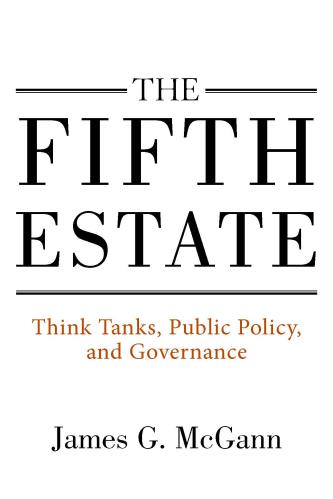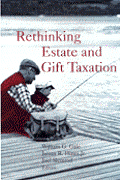The American Dream rests on the assumption that we live in a meritocracy, where a combination of skill and hard work, rather than inherited class and privilege, is the road to a better standard of living. The estate tax is one of the few provisions of the tax code that attempts to eliminate that unearned wealth—but if the House GOP has its way, the estate tax will be no more by 2024. The Tax Cuts and Jobs Act would first double the exemption—to $11 million—before eliminating the tax entirely in six years.
If enacted, the proposal would further diminish the tax’s ability to promote intergenerational mobility, which has eroded very badly over time. By now, only a tiny group of extremely large estates are subject to any tax at all.
There are several reasons to consider the opposite of the GOP approach, instead returning the tax to earlier levels. We could use the funds to provide working-class America a pay raise that could help restore their share of income to 1970s levels. That would relink rewards to work rather than inheritance and put a big dent in inequality.
Who pays the estate tax? Almost no one.
The estate tax is paid by a tiny fraction of American estates – about 2 out of every 1000 deaths. That contrasts to the 1970s, when there were over 70 taxable estates for every 1000 deaths. Most of that decline reflects the rising exemption level. In the 1970s, the exemption was $60,000 (about $280,000 in today’s dollars or over half a million per couple). Now, every estate smaller than $5.49 million or $11 million per couple is exempt. Not only are very few estates subject to the tax, but contrary to what many believe, even fewer of them are small businesses and family farms (about 80 in 2017).

Despite the fact that they will never be hit by the estate tax, the majority of Americans still think that we should eliminate it. This is largely due to misconceptions about who pays the tax. Of surveyed respondents who favor eliminating the tax, about 70 percent believe that it might affect them and three-quarters believe that it might force the sale of a small business or a family farm.
Republicans have framed the estate tax as a “death tax.” This confuses the timing of the tax with who it affects. Dead people don’t pay taxes. The main burden of the estate tax is on those who receive bequests. The reason it’s important to be clear about this is because it is often argued that the estate tax involves taxing the same people twice. But it doesn’t. It involves taxing two different people (or households) just once. Moreover, because unrealized capital gains make up a significant and growing share of larger estates, and the cost basis for taxing them is stepped up at death, much of this wealth is never taxed even once. And because most recipients of large bequests are themselves wealthy and did nothing to earn their inheritance, these bequests are, in essence, welfare for the rich. Some economists argue that the prospect of making a gift or the anticipation of receiving one changes behavior – for example, the incentive to save – but evidence that such changes are empirically important is scant.
A good source of revenue that could be used for other purposes
Revenue from the combined estate and gift taxes has plummeted from what it was in the 1970s (see chart).

In 1972, the exemption level was over half a million per couple in today’s dollars and the top marginal tax rate was 77 percent. If the combined estate and gift taxes were to generate the same share of federal revenue as they did back then, they would have produced about $85 billion in 2015. The nearly $1 trillion that this could generate over a decade would be roughly enough to provide a substantial pay raise to the working class that could help return the share of income received by the bottom quintile back to historic levels.
A pay raise for working families
One way to accomplish this is to offer a worker pay credit, similar to one suggested by the Tax Policy Center’s Elaine Maag in 2015 – and earlier still by Isabel Sawhill and Adam Thomas. It would provide a 15 percent raise to every working American up to a maximum of $1,500 per year. The credit would then phase out as earnings rose up to $40,000 per year. A couple could earn far more than this by pooling their earnings, so the proposal is very marriage-friendly in addition to rewarding work. It is a first cousin of the Earned Income Tax Credit (EITC) but is much simpler and thus less error prone because, unlike the EITC, it does not depend on family income and the number of children. Any concerns about this benefitting low-wage workers in high-income families could be handled by setting a family income and assets cap on eligibility. The credit would be delivered as part of an individual’s paycheck, offsetting payroll taxes, reinforcing the idea that it is not only an earned benefit but also a form of tax relief for working families.
Though different from the worker pay credit outlined above, a proposal from Senator Sherrod Brown and Representative Ro Khanna to expand the EITC is similarly motivated. It would increase the value of the EITC and dramatically expand its reach to childless workers. According to the Tax Policy Center, this proposal would increase the after-tax income received by those in the bottom 20 percent of the income distribution by 6.6 percent, which would close nearly one-third of the decline in this group’s share of after-tax income since 1979.
In combination with a higher estate tax, a worker pay credit would prevent America from becoming more of a class-based society than it already is by asking each new generation to earn their own way. It would provide bigger pay checks to a group of Americans who have been falling behind. And it would accomplish both by honoring the importance of work – not welfare or windfalls – for boosting one’s income.
As Franklin D. Roosevelt declared to Congress in 1935, “The transmission from generation to generation of vast fortunes by will, inheritance, or gift is not consistent with the ideals and sentiments of the American people.”
Instead of repealing the estate tax, it’s time to use it to reduce inequality by encouraging work.






Commentary
American workers need a pay raise – the estate tax could help
November 2, 2017